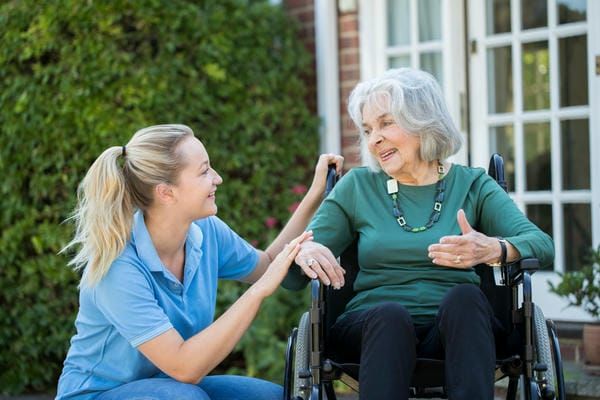As we age, maintaining a high quality of life becomes increasingly important. Quality of life for older individuals encompasses various aspects, including physical health, emotional well-being, social connections, and independence. Here are several key ways to enhance their quality of life, ensuring they live fulfilling and meaningful lives.
1. Physical Health and Well-being
Maintaining good physical health is crucial for older individuals. Regular exercise tailored to their abilities can improve mobility, strength, and overall health. Activities such as walking, swimming, or yoga are beneficial. Additionally, a balanced diet rich in nutrients supports overall health and can prevent or manage chronic conditions like diabetes, hypertension, and arthritis.
Regular medical check-ups and preventive care are essential. Vaccinations, screenings, and timely treatments can detect and address health issues early, ensuring better management and outcomes. Encouraging older adults to stay active and eat healthily can significantly enhance their physical well-being.
2. Emotional and Mental Health
Mental health is just as important as physical health. Older individuals may face challenges such as loneliness, depression, or anxiety. Providing emotional support and fostering a positive mindset can greatly improve their quality of life. Engaging in activities they enjoy, such as hobbies, reading, or gardening, can bring joy and purpose.
Mindfulness practices, such as meditation or deep breathing exercises, can help manage stress and promote emotional well-being. Additionally, encouraging older adults to seek professional help if they experience mental health issues is crucial. Therapy or counseling can provide them with coping strategies and emotional support.
3. Social Connections
Social interactions play a vital role in maintaining mental and emotional health. Encouraging older adults to stay socially active can prevent feelings of isolation and loneliness. Participating in community activities, joining clubs or groups, and staying connected with family and friends can provide a strong support system.
Technology can also bridge the gap, allowing older adults to connect with loved ones through video calls, social media, or online communities. Organizing regular family gatherings or outings can strengthen bonds and create cherished memories.
4. Maintaining Independence
Independence is a key factor in enhancing the quality of life for older individuals. Providing them with the tools and support they need to maintain their independence can boost their confidence and self-esteem. Simple modifications in their living environment, such as installing grab bars, ramps, or non-slip mats, can make a significant difference.
Encouraging older adults to engage in activities of daily living, such as cooking, cleaning, or managing their finances, can help them feel more self-sufficient. Additionally, assistive devices like walkers, hearing aids, or magnifying glasses can aid in their day-to-day tasks.
5. Intellectual Stimulation
Keeping the mind active and engaged is essential for cognitive health. Encouraging older adults to pursue lifelong learning through classes, workshops, or online courses can stimulate their intellect. Activities such as puzzles, reading, or playing musical instruments can also keep their minds sharp.
Engaging in meaningful conversations and discussions can provide intellectual stimulation and a sense of purpose. Encouraging older adults to share their knowledge and experiences can make them feel valued and respected.
6. The Impact of Caregivers on Senior Health
Caregivers play a pivotal role in enhancing the quality of life for older individuals. They provide essential support in various areas:
- Health Management: Caregivers assist with medication management, ensuring that seniors take their medications correctly and on time. They can also help with scheduling and attending medical appointments, which is vital for ongoing health monitoring and treatment.
- Daily Living Assistance: By aiding with activities of daily living such as bathing, dressing, and meal preparation, caregivers help maintain seniors’ independence and dignity.
- Emotional Support: Caregivers offer companionship and emotional support, reducing feelings of loneliness and depression. Their presence can significantly boost the emotional well-being of older adults.
- Safety and Security: Caregivers ensure a safe living environment by preventing falls and accidents, addressing mobility issues, and providing supervision.
- Social Interaction: Caregivers can facilitate social activities and outings, helping seniors stay connected with their community and loved ones.
In essence, enhancing the quality of life for older individuals involves addressing their physical, emotional, social, and intellectual needs. By promoting physical health, supporting mental well-being, fostering social connections, maintaining independence, and providing intellectual stimulation, we can help older adults lead fulfilling lives in their later years.








